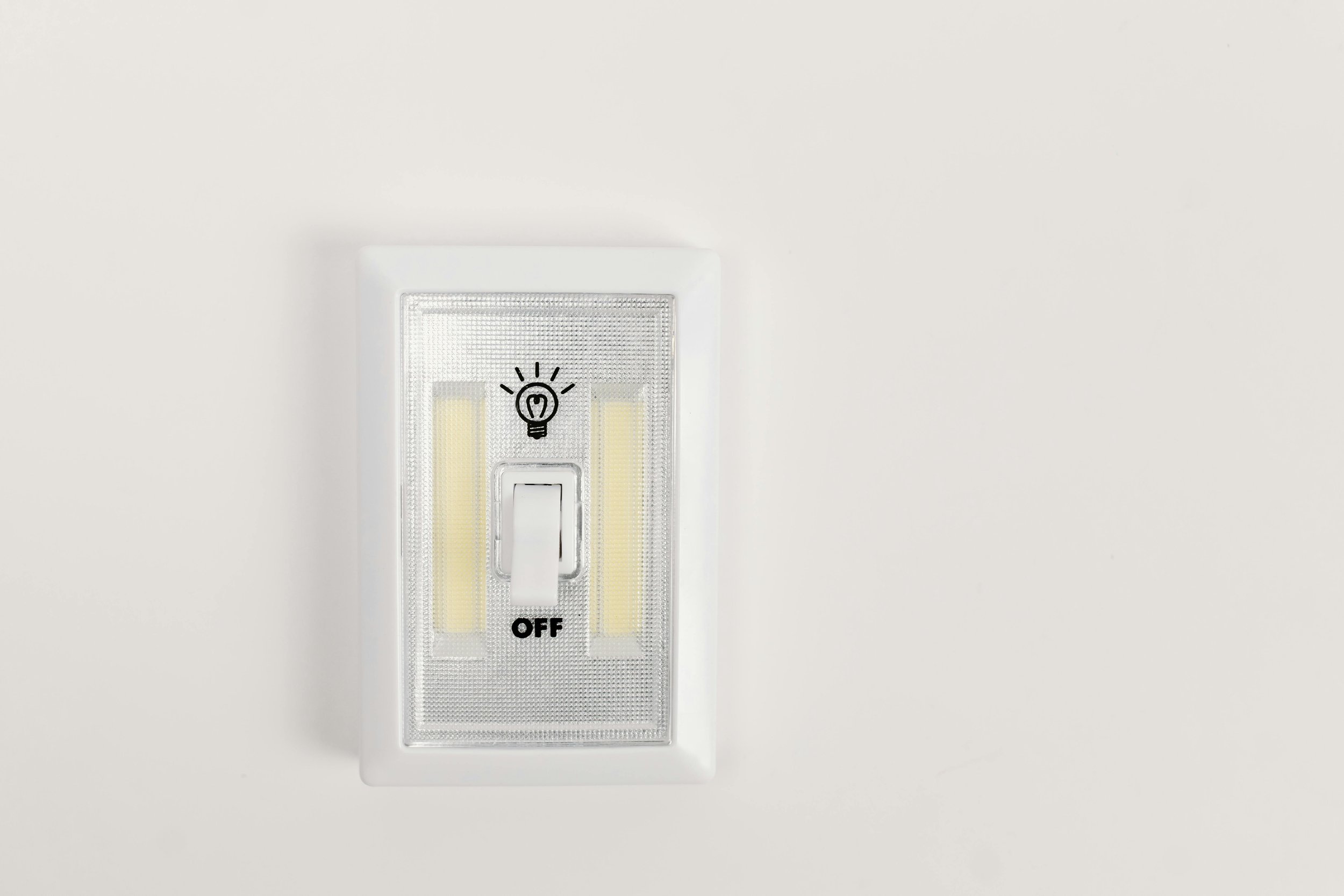Support for Habit Change in Wausau, Wisconsin
When Your Coping Strategies Stop Working for You
You developed certain habits for good reasons. They helped you manage stress, cope with difficult emotions, and get through challenging times. Maybe you reach for a drink after a particularly tough day, find yourself mindlessly scrolling through your phone when feeling overwhelmed, or turn to food for comfort when life feels out of control.
These habits might have served you well initially, but now they're starting to feel less like choices and more like automatic responses you can't seem to shake. Perhaps you're noticing they're affecting your health, relationships, or ability to handle stress in sustainable ways.
Here's what you need to know: Recognizing when habits have stopped serving you is the first step toward finding better balance.
Understanding Habits as Emotional Solutions
Most habits that become problematic started as reasonable solutions to emotional challenges. They helped you:
Manage stress after difficult days or situations
Cope with uncomfortable emotions like anxiety, sadness, or frustration
Create predictability in an unpredictable world
Reward yourself for getting through hard times
Avoid dealing with overwhelming thoughts or feelings
Connect socially or fit in with certain groups
The issue isn't that you developed these habits – it's that they may have grown beyond their original purpose and started creating new problems while you're still relying on them to solve the old ones.
How Habit Patterns Impact Your Overall Well-being
When habits become your primary way of managing life's challenges, they can contribute to:
Anxiety symptoms like:
Worry about when you'll be able to engage in the habit
Anxiety when the habit isn't available or isn't working as well
Fear about others noticing or judging your behavior
Panic about losing control over the habit
Depression symptoms like:
Guilt and shame about your behavior patterns
Feeling hopeless about your ability to change
Loss of interest in activities that don't involve the habit
Isolation from people who might not understand
Burnout symptoms like:
Using habits to push through exhaustion instead of addressing it
Relying on substances or behaviors to maintain performance
Feeling like you need the habit just to function normally
Exhaustion from hiding or managing your habit patterns
You Don't Have to Handle This Alone
When habits stop working for you and start working against you, it can feel isolating and overwhelming. You might be wondering if you're making a bigger deal out of this than necessary, or if you should just be able to figure it out on your own.
If your habits are creating more problems than they're solving and you're ready to find better balance, schedule a consultation. You deserve coping strategies that actually support your well-being rather than complicate it.
The Wisconsin Context: Balance in a "Work Hard" Culture
Living in Wisconsin often means embracing a strong work ethic and the ability to handle whatever life throws at you. There's something admirable about perseverance and finding ways to blow off steam after working hard. These cultural values reflect genuine strengths.
However, sometimes the same culture that celebrates hard work can also normalize using substances or engaging in behaviors as rewards or pressure releases. The goal isn't to judge these patterns, but to help you find sustainable ways to manage stress and reward yourself that align with your long-term well-being.
Finding balance doesn't mean abandoning your values or becoming someone you're not. It means developing a range of coping strategies so you're not dependent on just one or two methods for managing life's challenges.
Common Habit Patterns That Bring People to Therapy
Substance Use Habits: Using alcohol to unwind after stressful days, relying on prescription sleep aids more frequently than intended, or turning to substances to manage social anxiety or work pressure.
Eating and Food Habits: Stress eating when emotions feel overwhelming, restrictive eating patterns that become rigid and controlling, or using food as your primary source of comfort or reward.
Digital and Technology Habits: Endless scrolling through social media to avoid difficult emotions, online shopping as emotional regulation, or binge-watching shows to escape from real-life responsibilities.
Sleep and Energy Habits: Using caffeine or energy drinks to function through chronic exhaustion, irregular sleep patterns that worsen stress and mood, or relying on sleep as primary escape from problems.
Avoidance Habits: Procrastinating on important tasks that create anxiety, avoiding social situations or responsibilities, or using busyness to avoid dealing with underlying issues.
Self-Medication Habits: Using over-the-counter medications beyond their intended purpose, mixing substances to manage different emotional states, or relying on supplements or substances to regulate mood.
Individual Therapy: Your Safe Space to Explore Change
Individual therapy for habit change provides a confidential environment where you can:
Explore your relationship with habits without judgment, understanding what needs they're meeting and why they developed.
Identify triggers and patterns that lead to problematic behaviors, including emotional states, situations, or thoughts that activate your habits.
Develop alternative coping strategies that meet the same emotional needs in healthier, more sustainable ways.
Work at your own pace toward changes that feel manageable and realistic for your life circumstances.
Address underlying issues like stress, anxiety, depression, or trauma that may be driving your reliance on certain habits.
Create accountability and support for making changes without the pressure of group settings or family involvement.
How Individual Therapy for Habit Change Works
Understanding Your Unique Pattern
We'll explore what your habits do for you emotionally, when you're most likely to engage in them, and what underlying needs they're meeting.
Identifying Triggers and Emotional Patterns
You'll develop awareness of the emotional states, situations, or thoughts that typically lead to engaging in problematic habits.
Building Alternative Coping Skills
We'll work together to develop a toolkit of healthier strategies for managing stress, difficult emotions, and challenging situations.
Addressing Underlying Issues
Often, habits are symptoms of deeper challenges like chronic stress, unprocessed emotions, or mental health concerns. We'll address these root causes alongside the habit patterns.
Developing Sustainable Changes
Rather than focusing on complete elimination, we'll work on finding sustainable balance that works for your real life, relationships, and responsibilities.
Processing Shame and Self-Judgment
Habit change is often complicated by guilt and shame. We'll work on developing self-compassion and realistic expectations for the change process.
Planning for Challenges
You'll develop strategies for handling setbacks, high-stress periods, and situations where you're more vulnerable to falling back into old patterns.
What Makes This Different from Addiction Treatment
This individual therapy approach is designed for people who:
Have developed problematic habits but aren't experiencing severe addiction
Want to modify their relationship with certain substances or behaviors, which can include but does not require eliminating them completely
Are looking for insight-oriented therapy that addresses underlying emotional patterns
Prefer individual support rather than group-based treatment programs
Want to explore sustainable behavior change at their own pace
Important Note — Sidebar Counseling does not provide emergency, crisis, or on-call support: If you're experiencing severe addiction, withdrawal symptoms, or need crisis support, specialized addiction treatment programs are more appropriate.
Breaking the Cycle Without Breaking Yourself
Many people approach habit change with an all-or-nothing mindset that often leads to shame, frustration, and giving up entirely. Sustainable change usually happens gradually, with setbacks being part of the normal process rather than signs of failure.
You don't have to choose between completely giving up something that's been important to you or continuing exactly as you have been. There's often a middle ground where you can maintain some of the benefits while reducing the problematic aspects.
What You Can Expect from Habit Change Therapy
Through our work together, you can expect to:
Gain insight into what your habits are really doing for you emotionally and psychologically
Develop a wider range of coping strategies so you're not dependent on just one or two methods
Learn to recognize triggers and early warning signs before habits become problematic
Reduce shame and self-judgment around your behavior patterns
Create sustainable changes that fit your real life rather than impossible standards
Build confidence in your ability to handle difficult emotions and situations
Develop a healthier relationship with substances, behaviors, or patterns that have become problematic
Why Work with Someone Who Understands Life's Complexities
I've worked with many individuals who developed habits as reasonable responses to life stress but found those habits eventually creating new problems. I understand that change is rarely as simple as just stopping a behavior. It requires understanding what the behavior was doing for you and developing alternatives.
This experience helps me offer practical strategies for sustainable change that account for real-world stress, relationships, and responsibilities, not just theoretical approaches that fall apart when life gets challenging.
I also understand the importance of privacy when addressing personal habits. My practice operates on a self-pay basis, allowing for greater confidentiality without insurance records that could potentially impact other areas of your life.
If you're ready to explore a healthier relationship with your habits and develop better coping strategies, schedule a consultation. Taking this step doesn't mean you have to give up everything – it means giving yourself more choices in how you handle life's challenges.
Common Questions About Individual Therapy for Habit Change
"What's the difference between bad habits and addiction?"
Bad habits are problematic behaviors you can still control with effort, while addiction is more severe, potentially involving physical dependence, withdrawal symptoms, or complete loss of control. If you're questioning whether your habits are problematic, you may be dealing with habits that haven't reached addiction level but could benefit from support before they become more serious.
"Can therapy help with drinking problems without requiring me to quit completely?"
It really depends. Some people find they can develop a healthier relationship with alcohol through therapy without complete abstinence. We focus on understanding your patterns, triggers, and underlying needs, then work on sustainable changes that might include moderation, harm reduction, or abstinence depending on what works best for your situation.
"How long does habit change therapy typically take?"
Most people notice some improvement in their awareness and coping strategies within the first few sessions. Deeper behavior changes typically develop over 3-6 months, though this varies based on the complexity of your habits and your specific goals.
"Will habit change therapy work if I don't want to give up my habits completely?"
Absolutely. Therapy can help even if your goal is moderation rather than elimination. We'll work on understanding what your habits do for you emotionally and develop alternative coping strategies, which often naturally leads to healthier patterns whether or not you choose complete abstinence.
"Can I get help for habits while keeping it completely private?"
Yes. My practice operates on a self-pay basis, which means greater privacy without insurance records. Your therapy is confidential, and you have more control over what you share with family, friends, or employers about your personal growth work.
Taking the First Step
I understand that seeking help for habit changes can feel vulnerable, especially if you've tried to modify these behaviors on your own before. You might be wondering if your habits are "serious enough" for therapy, or if you should be able to handle this independently.
Here's what I've learned: The people who address problematic habits before they become overwhelming tend to have more success with sustainable change and less disruption to their lives overall.
If you're ready to develop a healthier relationship with habits that aren't serving you well, I'd be honored to work with you. My practice serves individuals throughout Wisconsin, with both in-person sessions in Wausau and virtual sessions available.
Schedule a consultation to get started. We'll discuss your specific habit patterns and determine if working together would be a good fit.
If you're experiencing habit issues alongside other challenges, you might also find it helpful to learn about my Anxiety Therapy, Depression Therapy, and Burnout Therapy services. For comprehensive support addressing multiple aspects of mental health, I also offer Support for First Time Therapy Clients.
Recent Habit Change Blog Posts
Support for Habit Change
in Wausau
300 N 3rd Street
Suite 302
Wausau, WI 54401
Virtual services are also available across Wisconsin.













